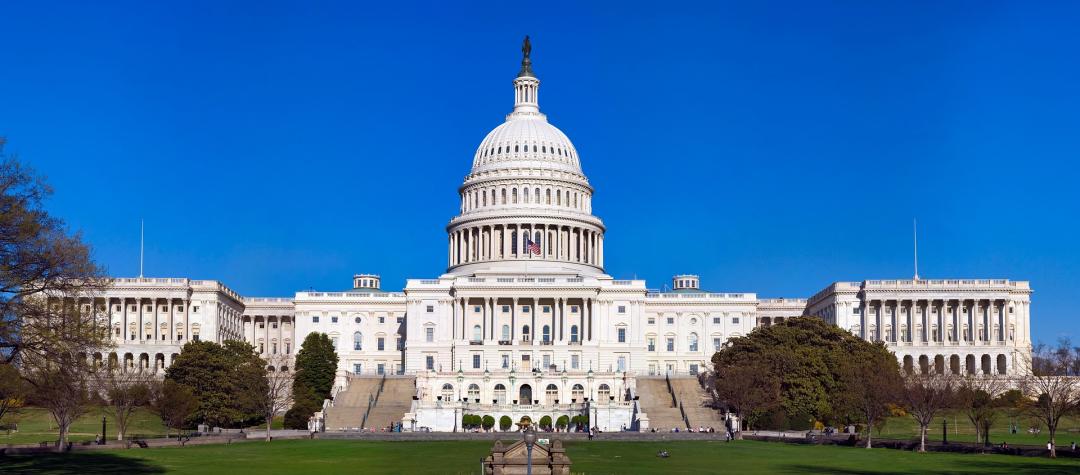
US Proposes Sanctions Against Georgia

Officials responsible for pushing Georgia's Russian-style " Foreign Agents Law" could face asset freezes and travel bans under a new bill to be introduced in the U.S. Congress. A draft of the bill, reviewed by POLITICO, criticizes the ruling Georgian Dream party for its "increasingly and regrettably" accommodative policy towards the Russian Federation, marking an "increasingly illiberal turn."
The bill states that Tbilisi has "openly attacked U.S. and other Western democracy promotion organizations, as well as local and international civil society, while embracing increased ties with Russia in particular, as well as China. Republican Representative Joe Wilson of South Carolina is expected to introduce the bill as early as Monday, according to sources familiar with the process. The bill would require top American officials to report to Congress on "nodes of undue political influence, kleptocracy, and elite corruption in Georgia" and on suspected Russian and Chinese intelligence assets operating in the South Caucasus country.
Aimed at "protecting and securing democracy," the bill imposes sanctions on government officials and others responsible for "undermining or violating democracy, human rights, or security in Georgia." It includes visa bans on politicians and their families involved in passing "recent Russian-style foreign agent legislation" targeting NGOs and media outlets that receive more than 20 percent of their funding from abroad.
The sanctions would also target Georgian law enforcement and security services, which have aggressively suppressed protests against the Foreign Agents Law. During a visit to Georgia last week, U.S. Assistant Secretary of State for European and Eurasian Affairs James O'Brien warned that if Georgia enacts the Foreign Agents Law, "we will see restrictions from the United States" affecting the finances and travel of those responsible. White House spokeswoman Karine Jean-Pierre stated that passage of the legislation would "force us to fundamentally reevaluate our relationship with Georgia."
The Foreign Agents Law passed its third reading in the Georgian parliament last week, but will require a majority vote by lawmakers to be fully enacted after the country's independent president exercised her symbolic veto power. The government argues that the law, which would label NGOs that receive more than 20 percent of their funding from abroad as foreign agents, is necessary to prevent foreign interference. But critics fear Georgian Dream will use it to stifle the media, opposition and civil society.
Brussels has warned that the law could jeopardize Georgia's aspirations to join the European Union. Despite concerns about backsliding on human rights and failure to implement key reforms, the EU granted Georgia candidate status in December.A U.S. Senate legislative staffer familiar with the U.S. bill said the text was drafted months ago amid concerns that Georgian Dream would reintroduce the foreign agents legislation after initial proposals were shelved following public outcry last year."
The idea is to show that we take our relationship and our obligations to the Georgian people seriously and that we will stand up for them," said the staffer, who requested anonymity to discuss the sensitive foreign policy issue, "but also that we need to illustrate a new and more robust theory of U.S.-Georgian bilateral relations."Analysts and opposition politicians attribute Georgia's increasingly anti-Western stance to Bidzina Ivanishvili, a former prime minister and founder of Georgian Dream who amassed his fortune in Russia. At a rally in defense of the foreign agents law last month, Ivanishvili accused the country's NGOs of serving a shadowy "global war party" that he claimed was creating conflict with Russia, echoing Kremlin-style propaganda.
See Also


Mirzoyan Meets US Deputy Assistant Secretary Joshua Huck

Azerbaijani President Holds Talks with UAE and German Business Delegations on Economic Cooperation

Grigoryan Confirms Armenia’s Readiness to Dissolve OSCE Minsk Group Upon Peace Treaty Signing

Azerbaijani Official Warns of Ecological Risks to Caspian Sea, Similar to Lake Urmia and Aral Sea

